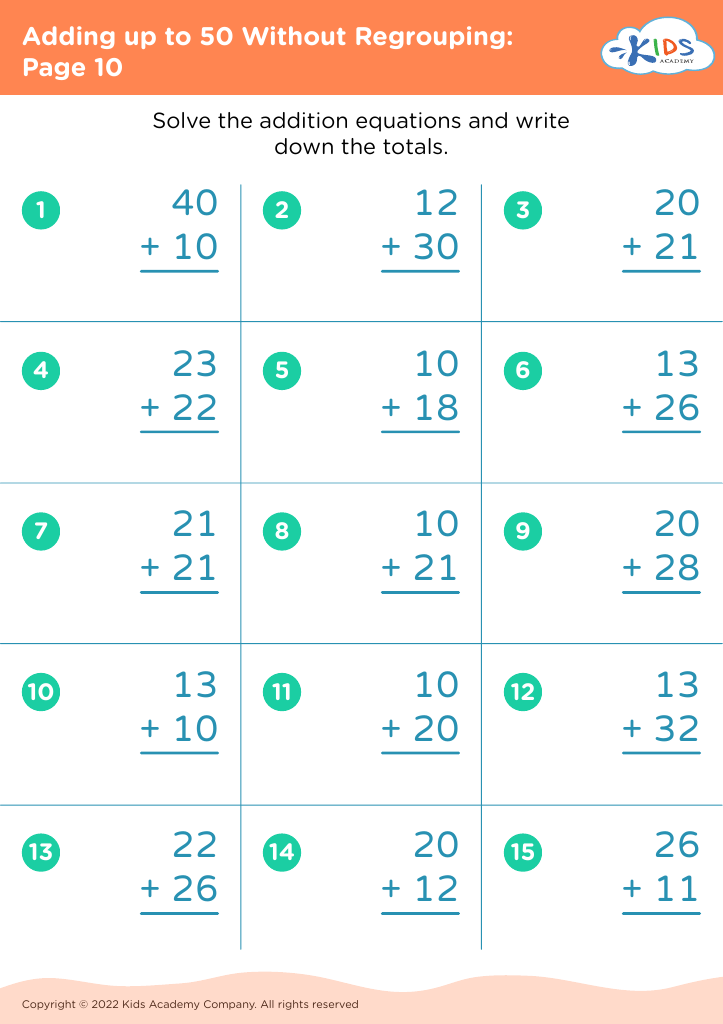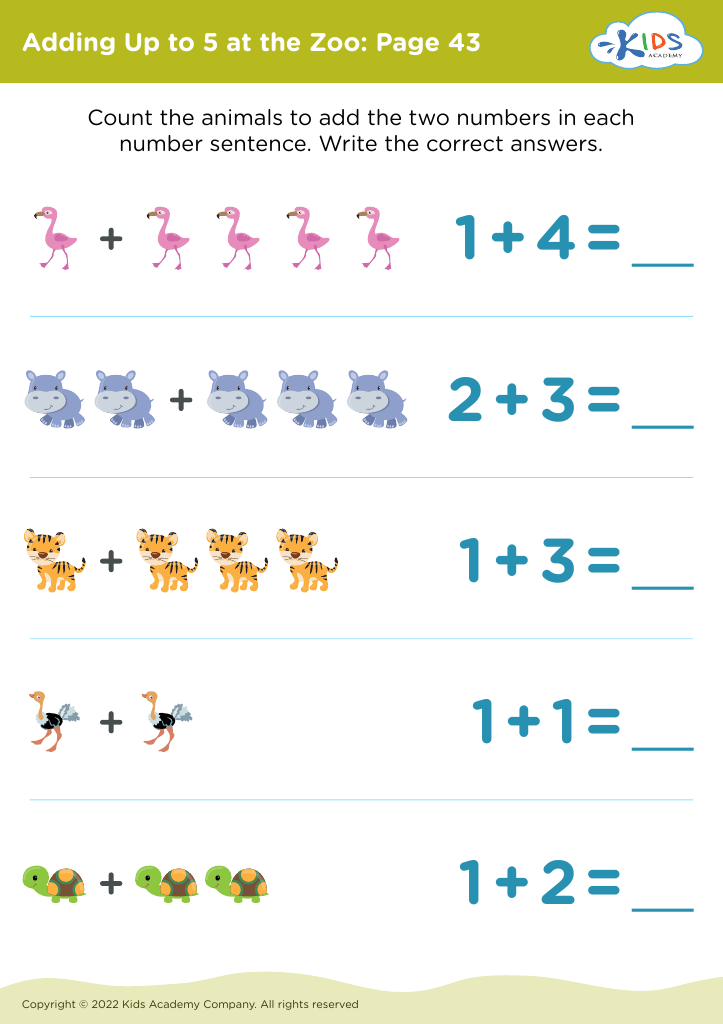Mathematical thinking Worksheets for Ages 3-8
7 filtered results
-
From - To
Discover our engaging Mathematical Thinking Worksheets designed specifically for children ages 3-8. These worksheets promote essential math skills through fun and interactive activities that captivate young learners. Our comprehensive collection covers a variety of topics, including number recognition, counting, basic addition and subtraction, and pattern recognition. Perfect for at-home practice or classroom use, these worksheets help develop critical thinking and problem-solving abilities in a playful format. With colorful illustrations and age-appropriate challenges, these resources make learning math enjoyable and accessible for early learners. Boost your child's confidence in math with our curated selection of worksheets today!
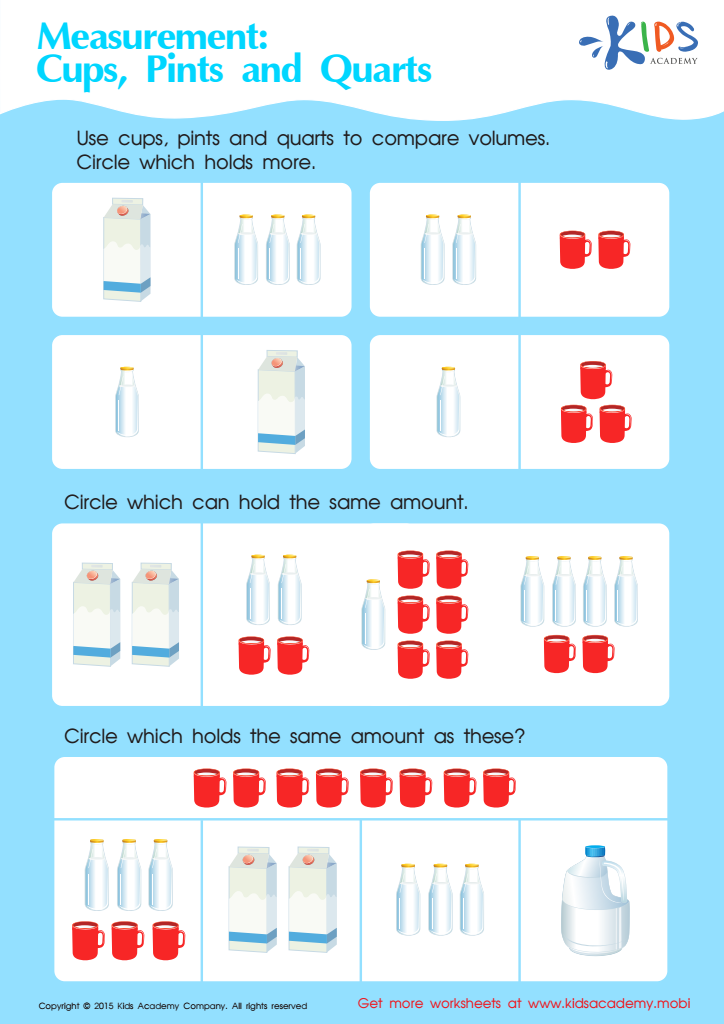

Measurement: Compare Volumes Worksheet
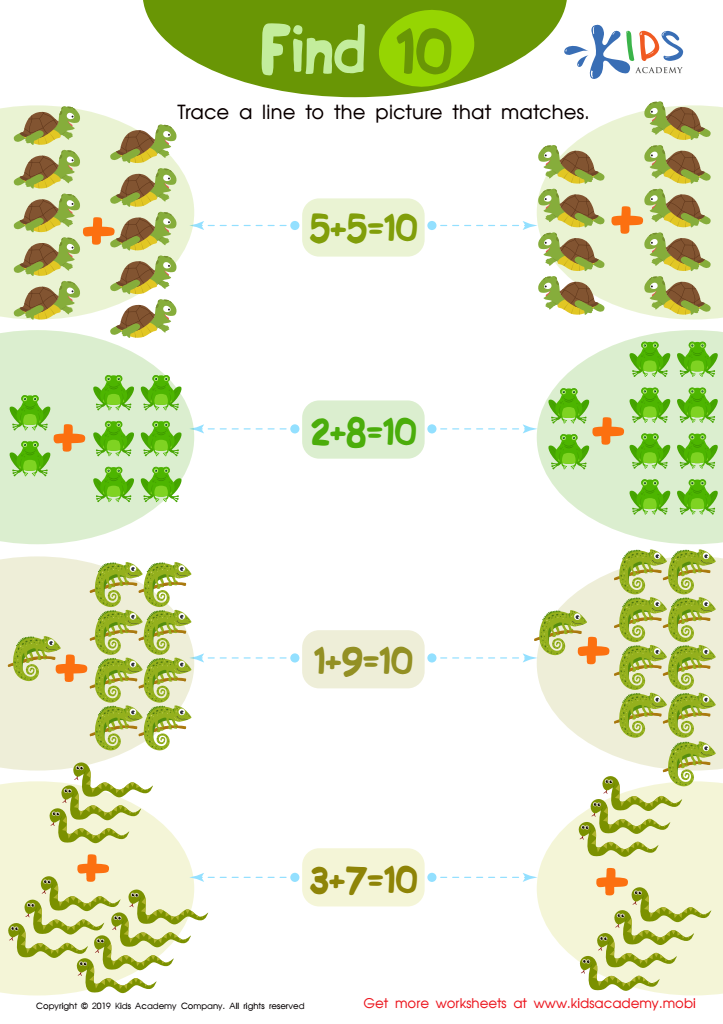

Find 10 Worksheet
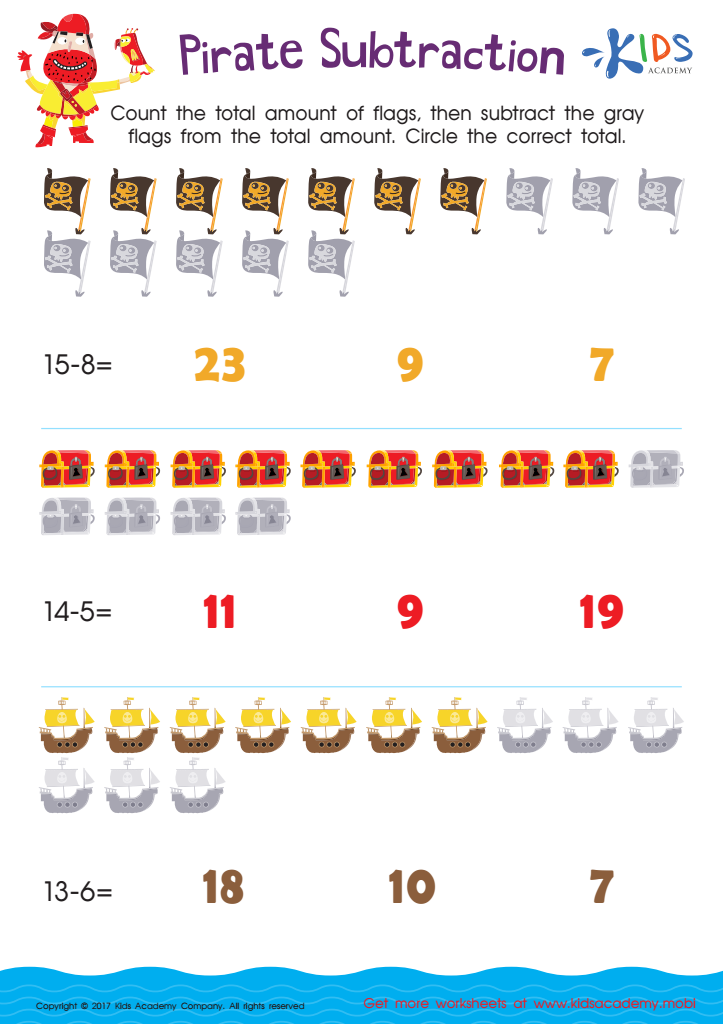

Pirate Subtraction Substraction Worksheet
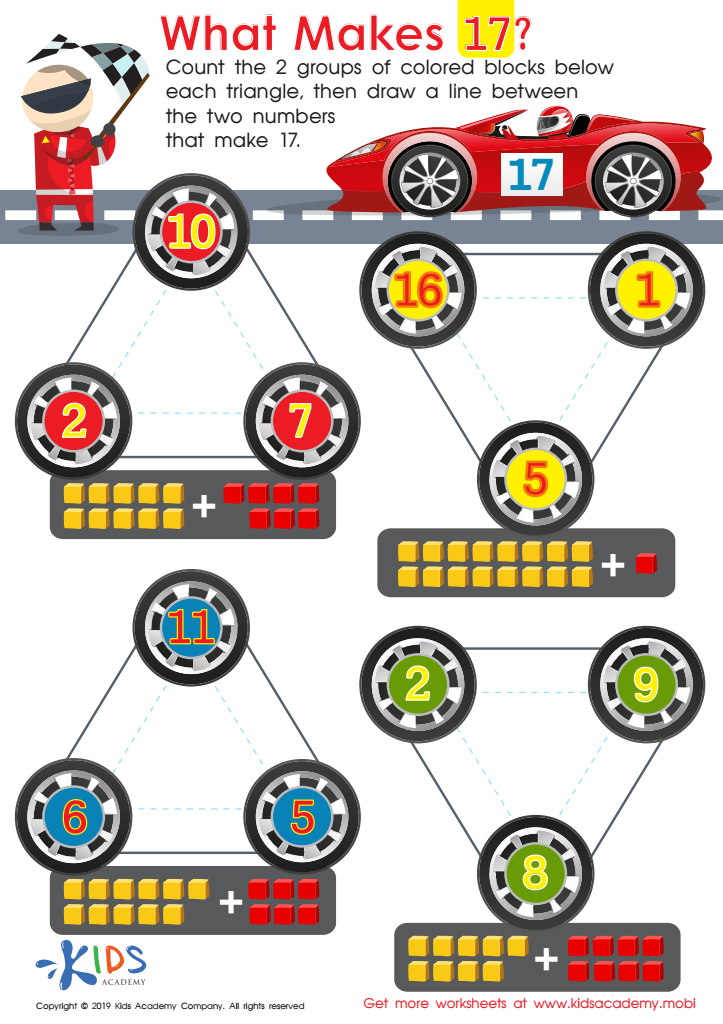

What Makes 17 Worksheet
Mathematical thinking is crucial for children ages 3-8, as it lays the foundation for their future learning and problem-solving skills. At this age, children are naturally inquisitive and eager to explore numbers, patterns, and spatial relationships. By engaging in early mathematical thinking, we help them develop critical cognitive skills that extend beyond math.
Understanding basic math concepts enhances children's logical reasoning and analytical abilities, fostering their capacity to think critically about the world around them. Activities that involve counting, sorting, measuring, and recognizing shapes not only introduce mathematical vocabulary but also promote fine motor skills and social interaction.
Moreover, mathematical thinking nurtures confidence and perseverance. When children tackle math challenges, they learn the value of effort and practice, essential qualities for academic success. Parents and teachers play a pivotal role in creating a positive math environment, using playful, everyday experiences to encourage mathematical exploration.
Ultimately, nurturing mathematical thinking during these formative years equips children with vital life skills, empowering them to tackle challenges in later schooling and everyday situations. By fostering a love for math early on, we help prepare children for future academic achievements and informed decision-making.

 Assign to My Students
Assign to My Students
